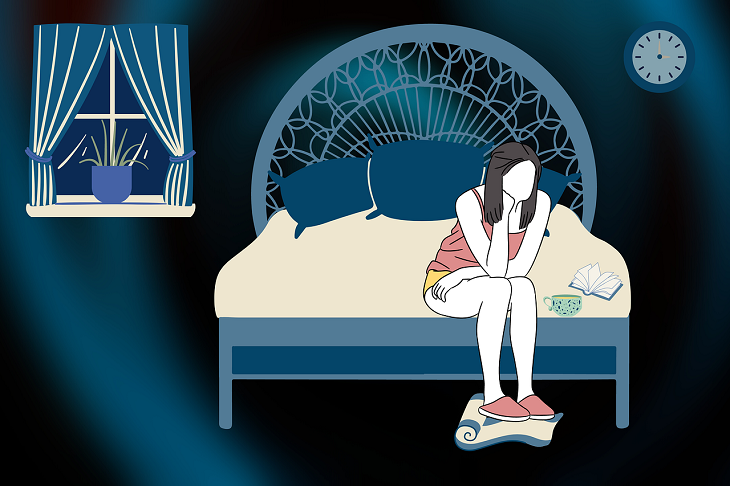THE DAILY DOSE
How Your Quality Of Sleep Can Influence Liver Function

People often fail to recognize just how important sleep is for overall health. In today’s busy world, it can feel like there aren’t enough hours in the day to get everything done, and often sleep falls by the wayside for other things that are seemingly more important. However, sleep is crucial to your health and wellbeing in a variety of ways.
As well as letting the body rest, sleep repairs damage throughout the night, which is helpful for both immune health and cognitive function. Sleep also plays a role in weight management, memory, exercise performance, mood, heart health, and liver health. To put it simply: a person who doesn’t get adequate sleep is not going to stay healthy for very long.
Many people are also hyper-focused on the length of time they spend asleep, completely disregarding the quality of sleep they’re getting. But quality of sleep is far more important than quantity. So what does quality of sleep mean, exactly? And when it comes to things like liver health, what do we know about how your quality of sleep can influence liver function?

What is quality of sleep?
When we lie down for some shuteye, we cycle through various stages of sleep several times per night. These cycles include light sleep, deep sleep, and REM sleep. Each stage in the cycle is as important as the last and is required for the best quality of sleep to occur.
Light sleep acts as a primer for deep sleep. During this time, the muscles begin to relax, and respiration and heart rate both decrease. Body temperature begins to drop during light sleep as well. All these processes occur so that the body is ready to transition into the next cycle.
Deep sleep is the stage dedicated to restoring the body. Blood flow increases, hormones are released, and the brain gets rid of waste. All of the physiological actions that take place during this phase are designed to repair tissue and cells – a crucial process.
The final stage before cycling back into light sleep is REM (or rapid-eye-movement) sleep. During this stage, heart rate and respiration speed back up, and your body’s temperature may begin to fluctuate as the regulation that occurs in light sleep is turned off.
REM sleep is the type of sleep that dreams occur in, and because of this, the body essentially becomes paralyzed (to stop you moving around according to what you’re doing in your dreams!). REM sleep is designed to help your brain process events and restore itself.
Combined, these sleep stages last roughly 90 minutes, and each person must cycle through them three to four times per night. When the body goes through these cycles adequately and performs all its tasks to prepare the body for another day, sleep is considered “good quality”.
How does sleep affect liver function?
According to research, quality of sleep plays a large role in how well your liver functions. The liver breaks down nutrients and other substances that are in the blood so that they can be either used by the body or excreted as waste. This process is important because without a proper filtering system, toxins can build up within the body, causing health issues. This filtering is referred to as liver metabolism.
Studies have shown that a person’s liver metabolism can be severely affected by losing just six hours of shuteye. One particular study found that one night of sleep loss caused the liver to lose its ability to produce glucose (which the body needs for energy) and process insulin (which helps the body’s cells use that glucose as energy). This can lead to a higher risk of developing diabetes.
Sleep and liver health are also connected in other ways. It’s thought that if a person has difficulties with sleep, their liver health may already be compromised in some way. This is because the liver helps to regulate the circulation of melatonin, a substance designed to help maintain the sleep–wake cycle and thus encourage good-quality sleep. It’s quite common for people with liver disease to experience sleep disturbances as well.

Can lack of sleep cause liver problems?
As mentioned above, sleep and the health of the liver are closely tied together. While sleep has been shown to be affected in people with existing liver issues, the opposite can also be true. People who have poor quality sleep not only increase their risk of diabetes, as mentioned above, but also their risk of developing fatty liver disease.
This is because, much like the glucose/insulin issues, the way the liver metabolizes fat is also compromised in people who do not get enough sleep. Fat can build up within the liver and bring on fatty liver disease. Inadequate sleep can also play a role in the way that liver enzymes, which are proteins that speed up important chemical reactions, do their job. Enzymes in people who are not getting enough sleep are less able to perform, increasing the risk of liver disease significantly.
There are many reasons you should get good-quality of sleep, and liver health is just another to add to the long list to ensure that your body is working as it should.